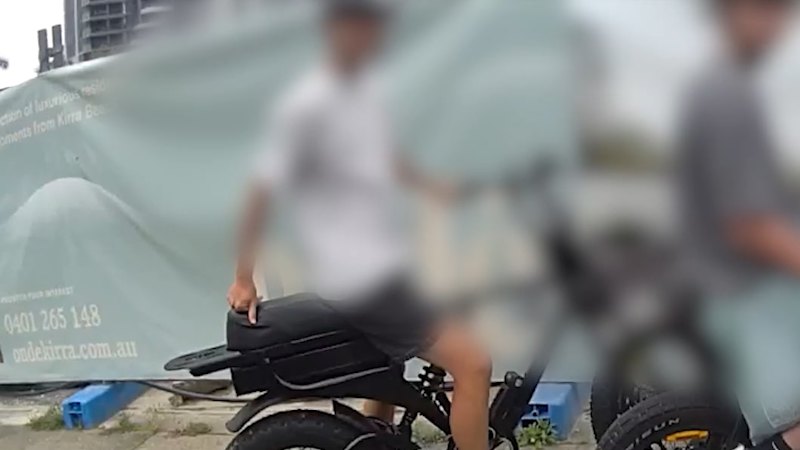
URGENT UPDATE: New nationwide standards for e-bikes are set to take effect by the end of the year in Australia, tightening regulations amid rising concerns over high-powered electric bikes. Authorities are considering a ban on the sale of e-bikes that exceed 25 km/h, marking a significant shift in safety protocols.
The move comes in response to alarming incidents involving youths riding non-compliant e-bikes. On November 9, police intercepted three teenagers on the Gold Coast riding bikes with throttles, classified as electric motorbikes. Tragically, a recent crash involving a 15-year-old boy and an eight-year-old victim on the Sunshine Coast has amplified calls for stricter regulations.
Queensland Premier David Crisafulli has faced pressure to revise existing rules before the holiday season but has opted to wait for a parliamentary inquiry into e-mobility, expected to report by March 30. The inquiry aims to address loopholes that have allowed the influx of high-powered bikes, which can reach speeds and power levels comparable to motorcycles.
As of now, high-powered electric bikes are not illegal to sell in Australia, even though they can only be ridden on private property. With the removal of mandatory import approvals in 2021, e-bikes have been imported without rigorous scrutiny. The Queensland Transport and Main Roads Department stated, “This has enabled the importation of non-compliant devices,” which has created safety concerns on public paths.
In response, federal, state, and territory transport ministers have agreed to reinstate reference to the European standard, EN15194, as part of the Road Vehicle Standards by the end of the year. Federal Transport Minister Catherine King emphasized the importance of clear regulations, stating, “Good, clear rules around e-bikes are critical to ensuring Australians are safe on the road.”
The EN15194 standard mandates that e-bikes must have a motor limited to 250 watts and cut off assistance when speeds reach 25 km/h. These measures will help ensure that e-bikes sold in Australia are safe and fit for purpose.
While some states allow e-bikes with motors up to 500 watts, the reinstated standards will provide clarity for both consumers and retailers. “The reinstatement of EN15194 means Australians will have the confidence to know the e-bikes they buy are safe,” stated Stephen Hodge, We Ride Australia national advocacy director.
Queensland police have ramped up efforts to educate the public on e-bike safety, conducting operations in schools and issuing fines for helmet violations. “What these numbers do not capture is the conversations our officers are having,” said Road Policing Group Chief Superintendent Mark Wheeler.
As the deadline for new regulations approaches, Australians are urged to stay informed about the evolving e-bike landscape, especially concerning safety measures and compliance. The push for stricter regulations aligns with a broader national strategy to ensure safe mobility and innovation across the country.
As developments unfold, the public must remain vigilant and engaged regarding the safety implications of high-powered electric bikes.






